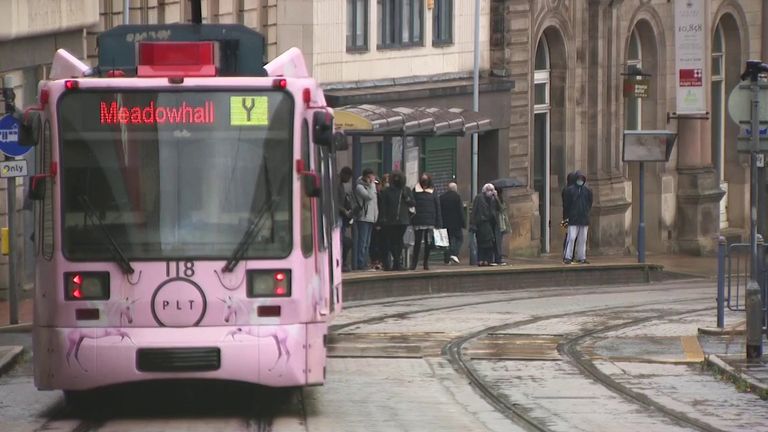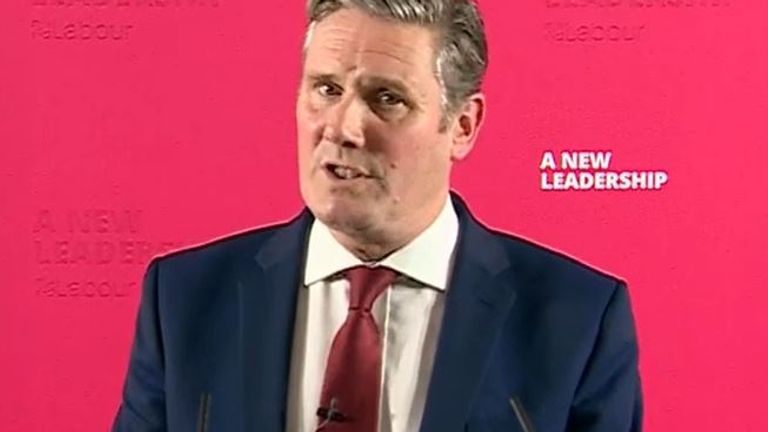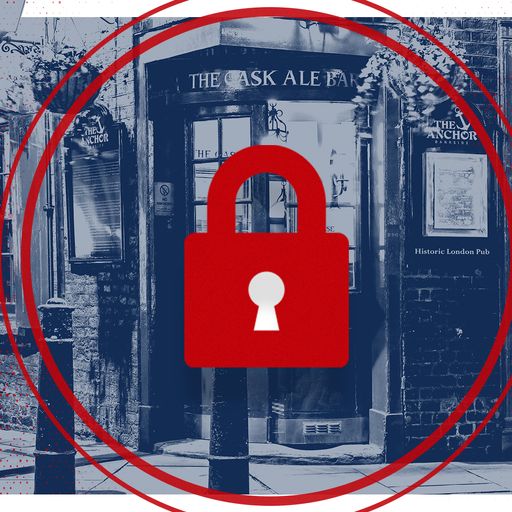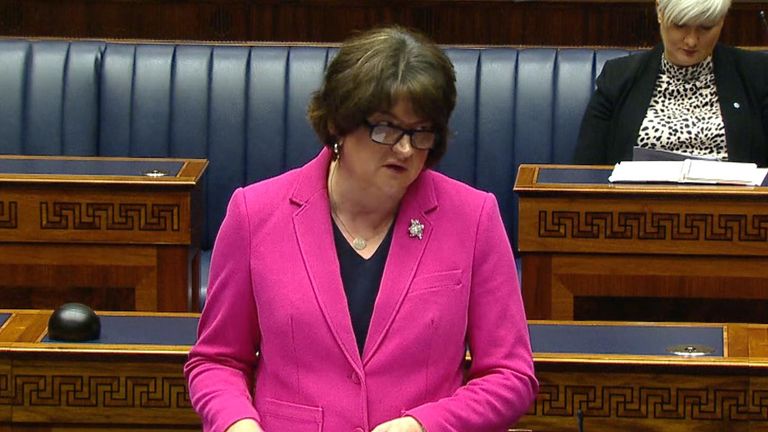Pressure is growing on the government to impose a short-term "circuit breaker" lockdown in England in a bid to get rising coronavirus cases under control.
Some scientists have warned the newly announced three-tier
coronavirus
restrictions do not go far enough, and only universal measures have any chance of curbing infections.
But what would it mean for people's daily lives, how long could a circuit breaker lockdown last, and where is the evidence it will work? Sky News explains.
What is a circuit breaker?
An actual circuit breaker is an automatic switch installed in an electrical circuit that flips and breaks the flow of electricity when there is a power surge or short-circuit, preventing fire and other damage.
A circuit breaker lockdown would therefore see people sever almost all contact with people outside their own household by shutting non-essential businesses and cutting social interactions, therefore reducing transmission of
COVID-19
.
Do scientists think it could work?
Thousands of deaths could be prevented up to January with a circuit breaker, according to scientific advisers to the government.
A
modelling paper
written by Professor Graham Medley and colleagues sets out that deaths could possibly reduce for the rest of the year from about 19,900 to 12,100.
Hospital admissions could be reduced from 132,400 to 66,500.
A limited lockdown, with schools and shops open but hospitality venues closed, could potentially cut deaths to about 15,600, they said.
Why has the North been hit harder now?
However, the numbers come with a range of caveats - including how fast the epidemic grows - and the paper has yet to be peer-reviewed.
Professor Matt Keeling, a co-author of the paper, said a circuit breaker "gives us a chance to reset the level of infection" and prevent the NHS being overloaded with coronavirus patients.
It might also help other measures such as test and trace to have greater impact, he said.
But Prof Keeling warned the only way to save lives in the long-term is to bring down the UK's coronavirus reproduction (R) number.
Please use Chrome browser for a more accessible video player

SAGE advised govt on lockdown three weeks ago
How long could a circuit breaker last?
A circuit breaker should last a minimum of two weeks, according to Prof Medley, who is a member of the Scientific Advisory Group for Emergencies (SAGE).
He said this is because "it will prevent a whole generation of infection and prevent it transmitting onwards".
Prof Medley said evidence suggested that impact on business and on people's mental health is reduced if people know how long restrictions will be in place.
When is a circuit breaker likely to be imposed?
The Scientific Pandemic Influenza Group on Modelling (SPI-M) - which provides advice to the Department of Health and Social Care - recommends a short, sharp lockdown is imposed in England from 24 October.
The date coincides with school half-term, and would minimise disruption to education.
But in a paper published on Wednesday, it said: "There are no good epidemiological reasons to delay the break as this will simply push back any benefits until later, leaving more time for additional cases to accumulate."
Please use Chrome browser for a more accessible video player

PM and Starmer clash over circuit breaker
Has it worked in other countries?
Other countries have tried the circuit breaker approach with differing levels of success.
Israel is expected to emerge from a national lockdown this week - initially imposed to cover the Jewish new year celebrations - after a traffic-light system similar to England's tiers plan failed to get infection rates under control.
The Israeli government said there are some "preliminary signs of success", although infection rates continues to rise - from 4,764 new cases on 14 September to more than 11,000 on 23 September.
The most recent figures show 3,538 new cases on 12 October.

Image:Israel says there has been 'preliminary signs of success'
New Zealand's month-long lockdown imposed on 26 March rapidly brought cases under control and the country has been praised for the efficacy of its response.
On 18 April, New Zealand recorded 13 new cases but did not have another day in double digits until 12 August, and so far has recorded just 25 COVID-19 deaths.
Scientists warn success depends on the public's willingness to adhere to any new rules.
Who is in favour of a circuit breaker lockdown?
It emerged on Tuesday that members of SAGE have been
pushing for such a lockdown for the last three weeks
, but the government has dismissed the idea.
Labour leader Sir Keir Starmer has now
come out in support of a circuit breaker
, saying it would prevent a "sleepwalk into a long and bleak winter".
Please use Chrome browser for a more accessible video player

Starmer calls for 'circuit break' in England
His intervention provoked a bitter backlash from the government, with a "senior source" branding him a "shameless opportunist".
A YouGov poll on Tuesday showed 54% of people surveyed said the government should have introduced a national lockdown in September, while just 28% of the 4,222 adults polled disagreed.
Greater Manchester mayor Andy Burnham and Liverpool's City mayor Joe Anderson have also said they would prefer a circuit breaker to Tier 3 restrictions in their regions.

Full list of coronavirus lockdown areas released - which tier are you in?
Who has gone for the circuit break option in the UK?
Northern Ireland is the first devolved administration to
agree to a new national lockdown
, with most measures coming into force on Friday.
Pubs and restaurants will close for four weeks, with the exception of takeaways and deliveries, while schools will close on Monday for two weeks - one of which will cover the half-term Halloween break.
Please use Chrome browser for a more accessible video player

NI lockdown is 'difficult and worrying news'
It stops short of the full lockdown imposed in March, but they are the toughest measures to be introduced in any of the UK's four countries so far.
Wales is preparing to follow suit, First Minister Mark Drakeford said on Wednesday.
He told Sky News his government is "very actively talking about and preparing for" a circuit breaker lockdown.
 简体中文
简体中文





